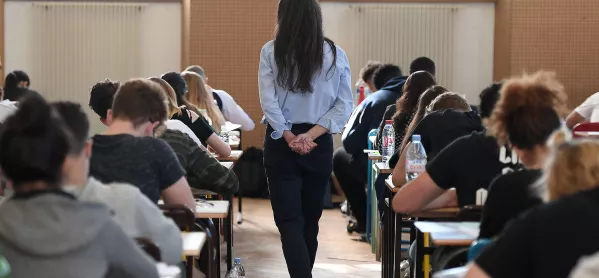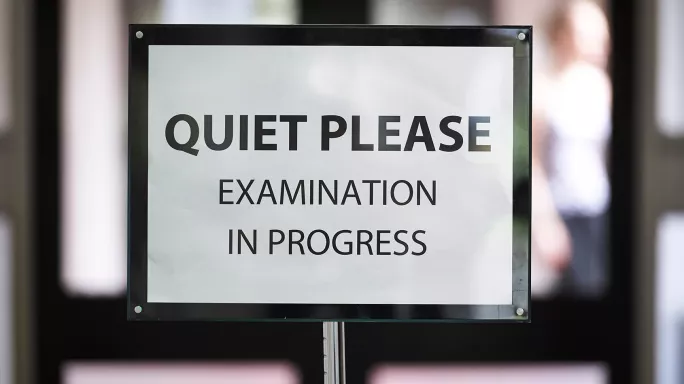Exam season is almost here, and among the many things that schools need to prepare are their invigilation teams.
The role of the invigilator is vital, ensuring that pupils have a calm and purposeful environment to fully focus on the examination.
Consistency is key: when pupils enter the room, they need to know the routines to follow without worrying about what is going on around them.
Quick read: Exam timetables and key dates for the 2019 GCSEs
Quick listen: What every teacher needs to know about memory
Want to know more? GCSE resit change will harm social mobility
So how can you get the right invigilators to ensure this happens?
1. Recruit wisely
When recruiting invigilators, it is important to know and respect their prior experience. You may recruit staff who have previously worked in the education sector or have experience of working with children.
An understanding of the pressure and anxiety that pupils are feeling is vital. Some pupils may need to take the exam in a small room, or have one-to-one invigilation. Occasionally, these students are difficult to manage, so choosing the right invigilators is key.
2. Train carefully
It’s crucial to train your invigilators in the Joint Council for Qualifications (JCQ) guidelines, setting up small rooms and the exam hall. Make sure the invigilators can read your seating plans and understand the instructions for the timing of exams.
It is a good idea to get your invigilators in and create a dummy exam room box with a seating plan and papers before the exam season begins.
Ask your team to set up the papers for the room, and remember to supply a mix of papers for different subjects, as there would be on a real exam day - you could even slip in a red herring to see if any invigilators spot it.
3. Create a leadership team
When training your team, you may find that some of them have leadership potential as they have an excellent understanding of the systems in place. It’s wise to appoint a lead invigilator, especially for any large exam halls.
This member of the team can direct others, ensuring that papers are in the correct place and that all checking procedures are followed. They can also be used to assist the exams officer in the secure room to ensure that papers can be prepared efficiently.
4. Practise procedures
Make sure invigilators fully understand the school’s set-up and process for the storage of phones, bags, coats and so on, to ensure that exams get off to a smooth start. Involving the team in any mock exams can help with this.
Creating a simple method to allow the team to identify pupils is also useful, so that any missing students can be quickly highlighted at the start of exams.
5. Plan for problems
The invigilators must know what to do if it all goes wrong on their way in on the day of an exam. If there’s a large amount of traffic or an accident and they are all going to be late, they need to know who to call and how to get hold of them.
6. Keep them informed
Knowing what’s going on in the school and the timings of the school day can aid invigilators in the smooth running of the exams in their room.
If an exam is on at the same time as a noisy assembly, for example, a well-trained invigilator will be able to act fast and ensure that there is minimal disruption for the pupils in their room.
Sometimes, on a hot day, even opening the window can lead to distractions if, say, a wasp enters the room. Invigilators have to manage these situations with minimal fuss.
So much accountability for schools sits on the performance of pupils in these exams. Therefore, it’s only wise to spend an appropriate amount of time training these key staff to be the best that they can be.
Nimish Lad is a secondary teacher and senior leader in Northamptonshire. He tweets at @nlad84 and blogs at https://researcherteacher.home.blog/


